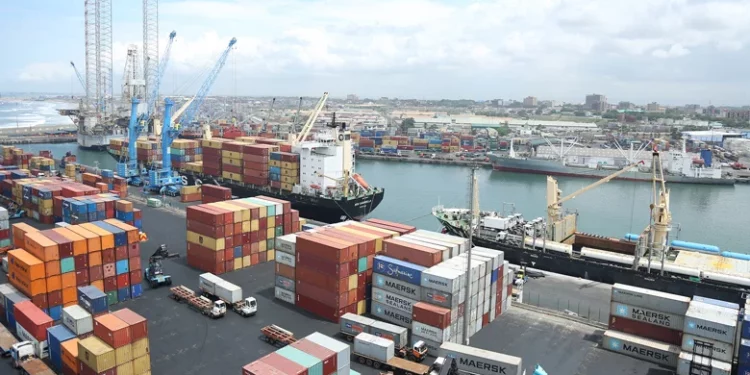Red flags in EU’s Green Trade Policies
The approach to aligning trade practices with sustainability has shifted from soft commitments to mandatory regulations and standards. In this post, Abrol and Singh reflect on how two such policies – the EU Deforestation Regulation and the corporate sustainability due diligence directive – may adversely impact trade from developing countries. They contend that these regulations should recognise country-level differences and provide greater regulatory space for developing countries to pursue catch-up policies.
The push to integrate environmental and social goals into international trade has gained momentum in recent years. As climate change intensifies and labour standards face growing scrutiny, an urgency to take action looms large. The alignment of trade practices with sustainability is bolstered by renewed environmental diplomacy, as seen in the negotiations for a post-2020 Global Biodiversity Framework and the leadership of the West, most notably the European Union (EU) and the United States under President Biden. This renewed approach to deal with environmental and human rights issues is different from the previous approaches based on soft commitments (that is, those that cannot be subjected to dispute settlement) while addressing the issue of sustainability in trade laws. The requirements today are in the nature of mandatory standards, in turn shifting the onus on the State to ensure that private sector adheres to regulations and standards.
A new study by Stechemesser et al. (2024), evaluating 1,500 climate policies enacted between 1998 and 2022, found that only 63 were truly successful in reducing emissions. While the finding highlights the challenge of crafting effective green policies, in this post, we reflect on how two specific policies may impact trade from the emerging Asian economies, including India.
The EU Deforestation Regulation (EUDR) under the European Green Deal and the corporate sustainability due diligence directive (CSDDD) seek to promote environmental and social well-being through international trade. Under the EUDR, seven commodities – namely cocoa, coffee, palm oil, soya, rubber, cattle, wood, and their derivatives – that have been produced on land deforested after December 2020 will be banned from the EU market from 2026. Under the CSDDD, companies operating in high-risk sectors such as textiles, agriculture, fisheries, and minerals must now take responsibility for mitigating environmental and social risks of businesses across their value chains. While CSDDD primarily targets larger businesses with turnovers exceeding a set threshold in the EU, its scope extends well beyond European borders. Players from other countries will inevitably be impacted by the directive’s broad inclusion of ‘chains of activities’ of the eligible companies. Some key areas of concern posed by these regulations, which could alter the geography of global supply chains and the trade dynamics of developing countries, are discussed below (Abrol and Singh 2024).
Unilateral measures oblivious to local practices
If passed, the EUDR could block smallholder farmers in developing countries from exporting their produce, on account of their traditional farming methods. In India, for example, tribal communities practicing agroforestry, which is protected by the Forest Rights Act, would be barred from EU markets. Similarly, under the CSDDD, producers across Asia, where households are widely regarded as units of production deploying both children and elderly in the process, could face bans on account of violations.
In defiance of the global principle of “common but differentiated responsibilities” and “respective capabilities”1, CSDDD requires companies to draft transition plans in line with the EU’s climate neutrality targets. However, these laws disregard the green energy development stages of developing nations, requiring producer firms to curb their reliance on coal, oil, and gas. And finally, the traceability requirements (that is, companies must be able to track the origin of their products along international supply chains) of these legislations are at loggerheads with the way agriculture is structured in developing countries. With small, fragmented, and often informal landholdings, insurmountable practical challenges arise in conducting end-to-end traceability of agricultural commodities. Thus, ultimately these provisions overlook national sovereignty, local practices, and developmental needs of developing countries.
A costly web of compliances for producers
The legislations will drive up compliance costs as firms will need to invest in new departments to enforce rules, create codes of conduct, and verification mechanisms. Setting up traceability systems will require further spending on manpower and technology, leaving small producers at a disadvantage. Both laws also demand costly certifications, third-party verifications, and labelling standards. Producers might rely on foreign certification bodies, escalating their expenses. Moreover, different certifications may be required in different countries thus creating a web of overlapping compliances that could effectively reduce trade benefits for small producers.
Vague standards with big consequences
EUDR’s criteria for benchmarking countries is vague and arbitrary, leaving countries scrambling for clarity on indicators and data to be utilised by the EU. By having the quantum of production as criteria for benchmarking, the provision penalises countries for their high output. Besides, by slotting entire countries into categories, even ethical producers within the country are thrown into a regulatory ordeal. Similarly, the CSDDD allows stakeholders to file complaints, but it is unclear what constitutes a legitimate claim, thus opening a Pandora’s box for potential misuse and undermining of local legal systems. Finally, the definition of deforestation seems skewed to favour the EU, overlooking the realities of developing nations with rich natural resources and high dependence on agriculture.
Shifting power dynamics in favour of importing countries and companies
The EUDR’s benchmarking clause drives importers away from high-risk producers. Exporters in developing countries lose their competitive edge as trade decisions shift from cost efficiency to compliance with EU laws. This hands significant power to the EU and the importing companies who decide the laws and praxis of what makes exporters eligible for the EU markets. Smallholder producers, additionally, face market asymmetries with gaps in information about end markets in the deforestation-free supply chains and little access to pricing data from lead firms. The lack of formal contracts heightens uncertainty, putting these producers at risk and diminishing their bargaining power. Finally, under the CSDDD, companies have to vet their partners, thus giving them a free hand to influence the latter’s business decisions and their access to finance.
Addressing the charges of ‘green colonialism’
Among the insightful policy perspectives offered by Stechemesser et al. (2024) to bridge emission gaps, country- and sector-specific interventions stand out. However, Europe’s sustainability measures for supply chains fall short of these principles. Without recognising country-level differences, embracing partnerships, reassessing its criteria, and providing adequate support for trade continuity, these legislations are unlikely to achieve their intended targets – leaving developing nations to bear the brunt. Green policies need to focus on fostering greater regulatory coherence through technical, financial, and technology transfer to help developing countries to enhance their production standards. They should also ensure regulatory space for developing countries to pursue catch-up policies to minimise the adverse impact. Such policies would certainly enhance the global legitimacy of the EU’s green trade policies and address charges of ‘green colonialism’.
This post is based on the work commissoned by the Institute for International Trade and Jean Monnet Centre of Excellence in Trade & Environment, The University of Adelaide. Views are personal.








